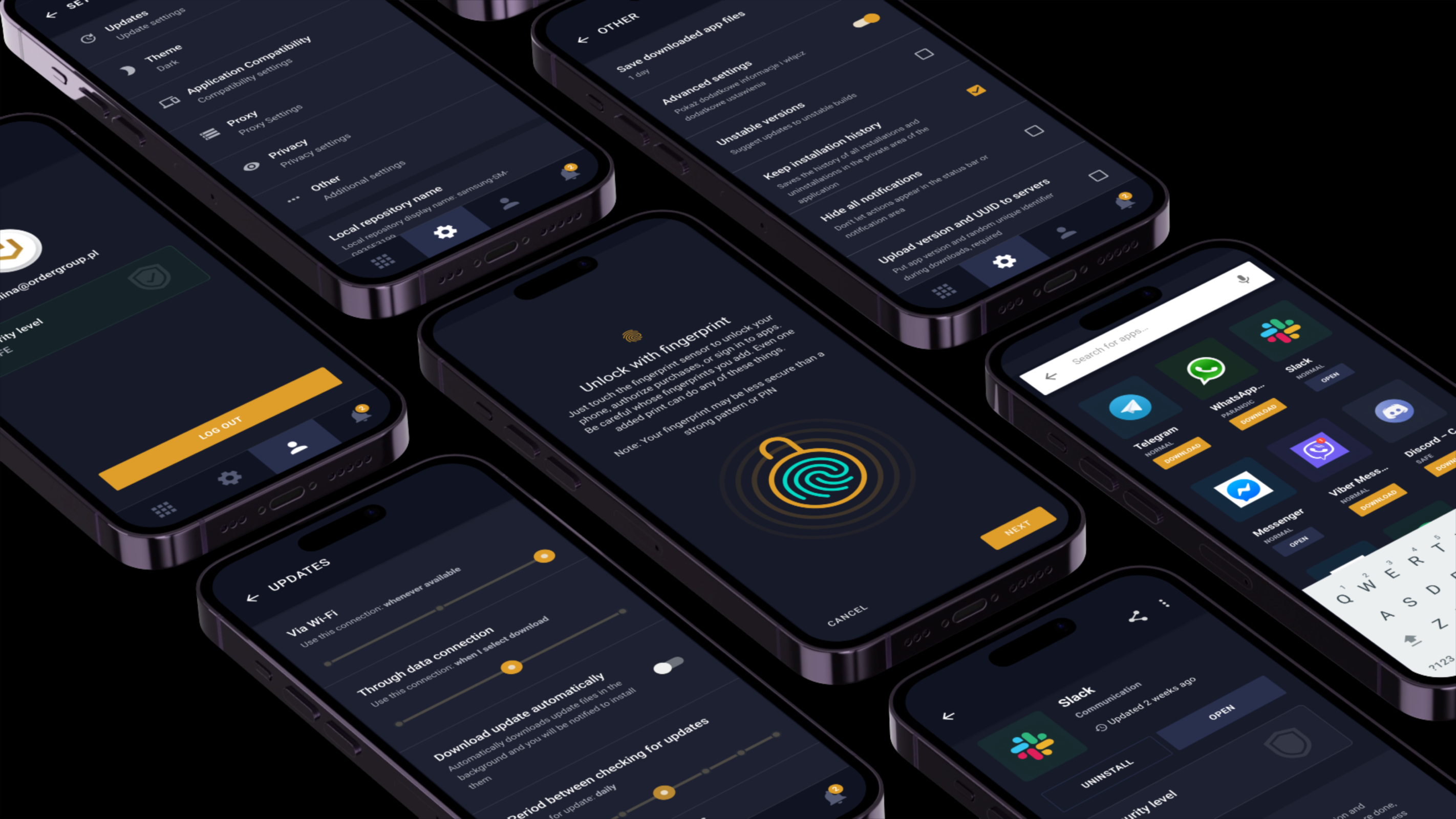Mobile App Development
Our team creates intuitive and efficient applications tailored to client needs. We use the latest technologies, ensuring security and scalability, so that your solutions can grow with your business.
what you'll find below

BENEFITS OF MOBILE DEVELOPMENT
Higher Availability
Keep Your Customers Loyal
Analytics at Your Fingertips
Amplify Your Brand
Improve the Customer Experience (CX)
Reach Wider Audiences for Higher Profits
Succesful Projects

Maciej Łata
Project Manager, RAW Sp. z o.o

Describe Your Idea & Get a Quote in 48h!
Get an estimate for the costs, timeline & the team layout needed for your project...

We will create outstanding custom mobile apps that your users will truly enjoy!
Why choose Order?

Native Apps
We develop mobile applications in an end-to-end process, specifically created for Android and iOS. Native apps are perfect if you want to provide a personalized user experience for each individual platform.

Hybrid Mobile Apps
We build these mobile applications that are developed using web technologies such as React Native. Hybrid apps are easy and quick to create and work identically on all platforms. It lowers maintenance costs and streamlines the upgrade process.

Usability and Simplicity
We understand how crucial it is to concentrate on the usability and simplicity of a mobile app, providing easy access to the data. Our UX and UI designs create experiences that benefit customers, to give them excellent user onboarding.
What all founders and Product Owners think they know but they are scared to ask...
FAQ for Founders
-
What technologies do you work on?
We build mobile applications for all major mobile development platforms - iOS (iPhone and iPad) and Android.
-
Do you develop native or hybrid apps in mobile development?
We develop both of them. We develop hybrid apps across all platforms, while IoS and Android apps as native ones develop strictly for their specific operating systems.
-
What specialists do you have onboard building mobile apps?
Each team composition depends on the project’s needs. All team members provide business value to your project. In your team, there can be a Project Manager, UX / UI Designer, QA Tester, and Developers - Front-end and Back-end.
-
What does the mobile apps development process involve?
The well-documented mobile app development process outlines the steps which we take from brief workshops to releasing the product in order to complete a typical mobile design project. It divides the project into smaller sprints, like strategy, planning, UI / UX design, information architecture & workflows, wireframes, prototype, development, testing, deployment, support.
It also categorizes the work and then breaks these high-level sections into tasks and resources that we use as a road map for each project.
-
Can I review the progress during the mobile app development process?
We work in Scrum development sprints and take care of transparency of all processes and changes made in the project. At every stage of the work, you have an overview of what we are doing. The Sprint Team runs a routine getting better with planning and reporting the results with each next demo. Working this way gives you the ability to have more transparency and control over the burn rate.
-
What is the shortest possible time to deliver a mobile app?
The minimum time is 7 months. This is because in 1 month we organize the team, 1-2 months are product and design workshops, and another 2-4 months are product development and testing. To know the exact time frame to develop your own mobile application, you can send us a form with an estimation inquiry. Our experts will get back to you with all the answers.
-
What is the minimum budget for developing a mobile app?
The minimum budget for web app development is 25 000 EUR per platform, we do not work with cheaper projects.If you want to know the estimated cost of your app please contact us.
-
How can I hire mobile app developers Android & iOS?
You can hire one specialist you need for your project or hire developers as a team. Here, the communication is on a top-level as you’re all under the same roof. It will help you get more control over the entire development process and can make changes at any time.
-
What frameworks do you use for mobile app development?
When we develop mobile applications, we use cross-platform mobile frameworks. They are the most selected frameworks and have rich libraries. Most of the cross-platform app are compatible with both iOS and Android. We are experienced in Xamarin, Ionic, Flutter, and React Native frameworks.
-
Will I own the source code?
Yes, you will get appropriate copyright or license rights for the custom code that we write for your project. Transparency with intellectual property rights is very important to us, and you will have the opportunity to review our code ownership terms before the project begins.
-
Can you give me a guarantee that Google or Apple will approve my App?
It’s impossible. But as we understand your needs, we will be able to confirm whether the idea meets Apple’s and Google Play’s requirements. We care about all standards of mobile app development. Apps pass through strict tests and usability analysis processes.

In order to discover what your product really needs
SO FAR WE WORKED WITH BRANDS LIKE:







